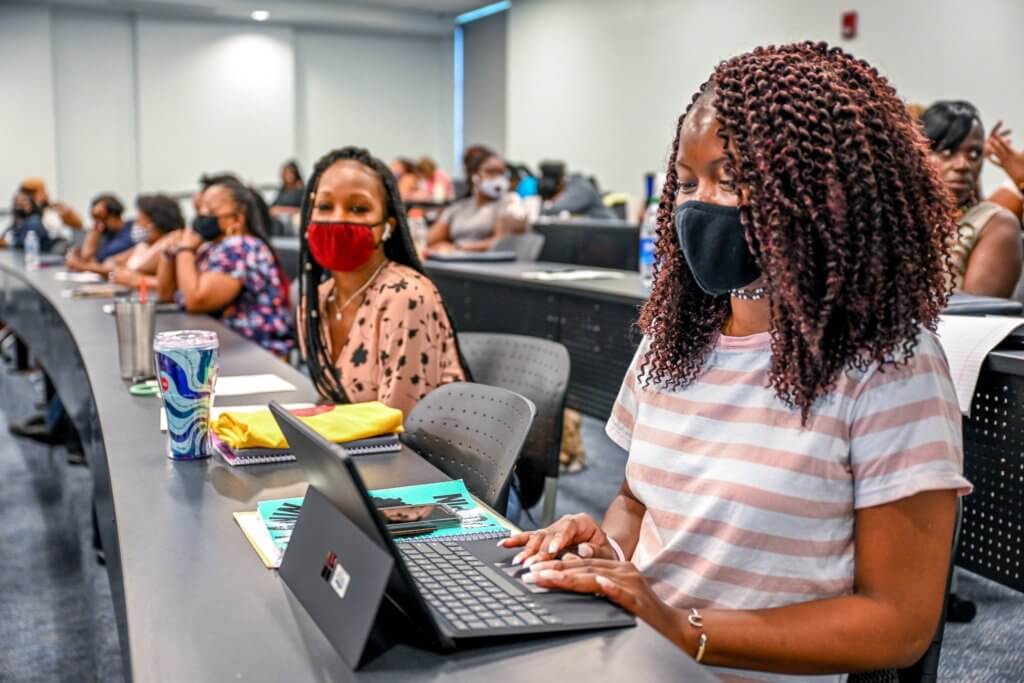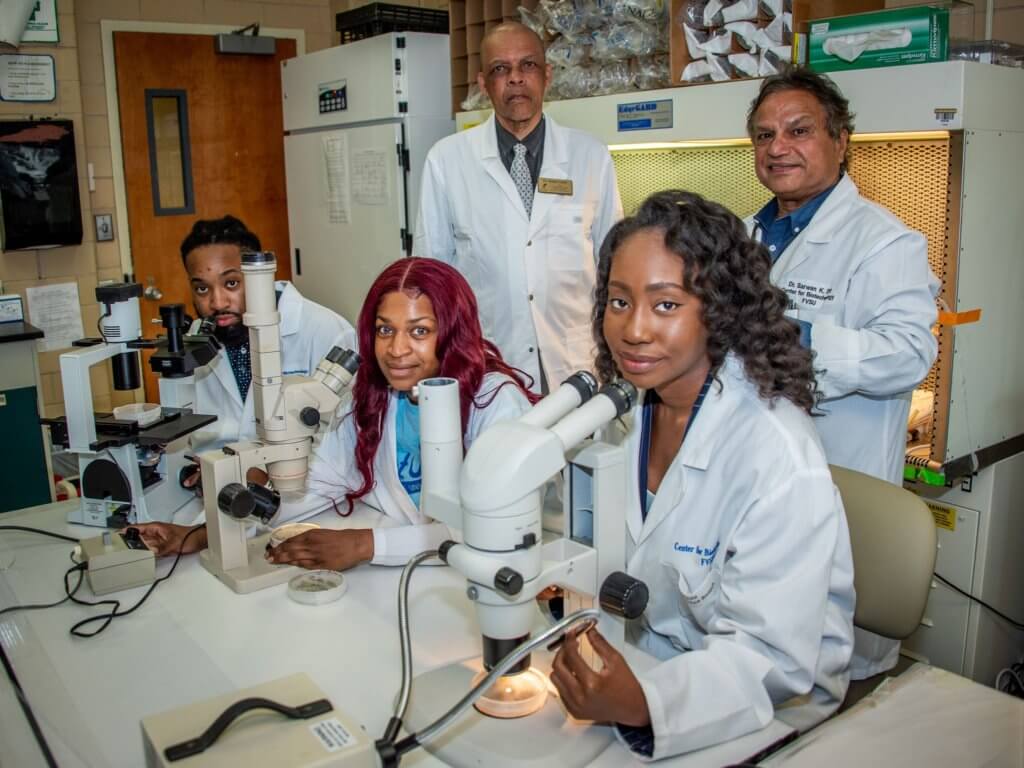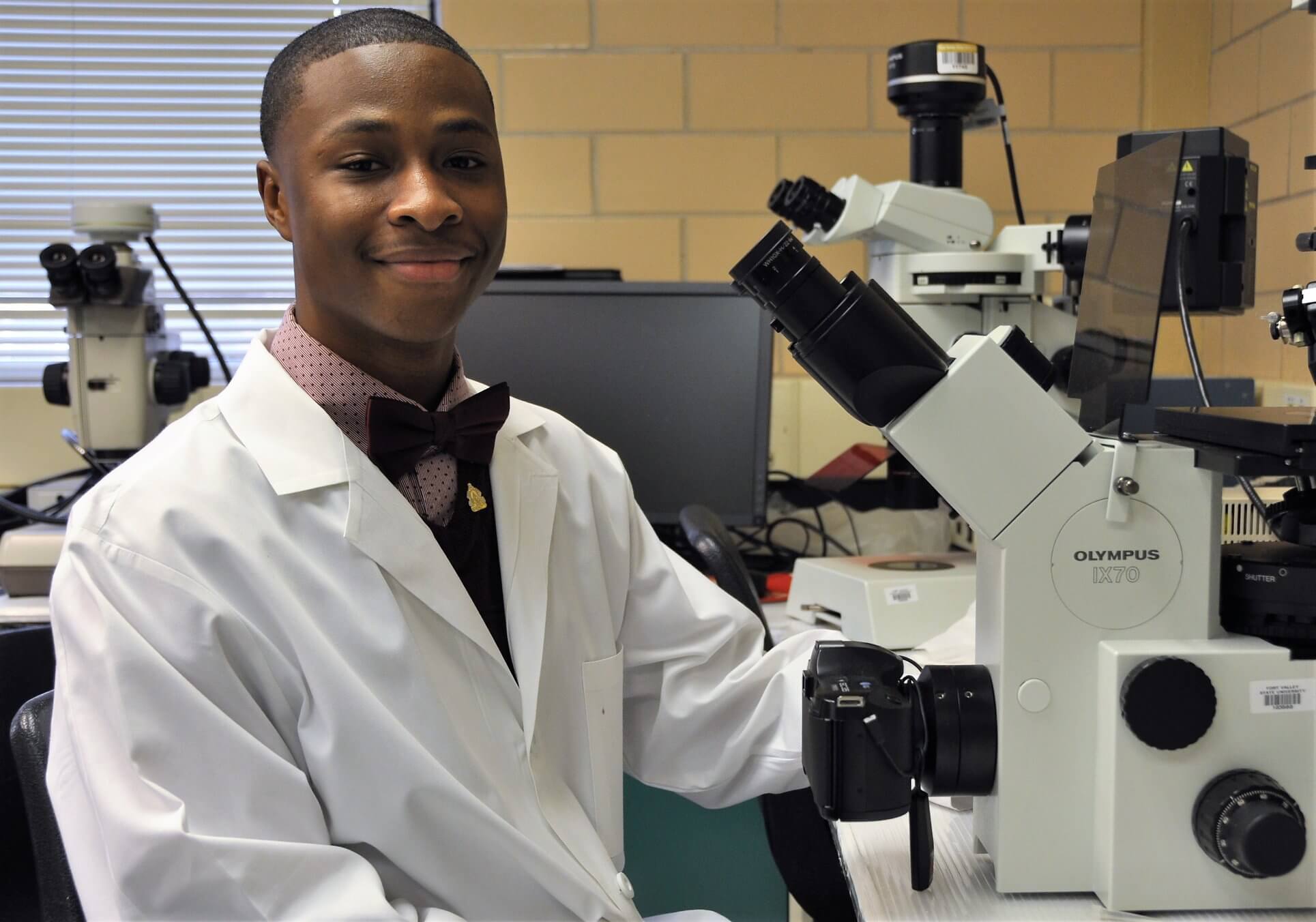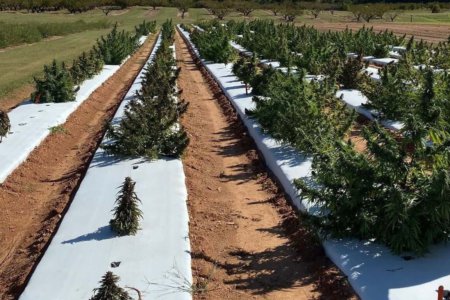At Fort Valley State University (FVSU), every student is seen as a potential world-changer. The education they chose was designed to guarantee their progression — straight to the forefront of global change.
They are trained in some of the most modern, well-equipped laboratories in Georgia, guided by world-renowned scientists who secure external grants for their impactful research. As graduates, they land esteemed positions in top companies or build on their competencies with additional qualifications from high-ranking institutions.
These are the accomplishments that make FVSU’s College of Agriculture, Family Sciences and Technology (CAFST) the dynamic division it’s known for being. Little wonder why it has attracted 650 students from across the globe — each determined to master the art of trailblazing. Aspiring postgraduates are learning to do just that in one of three focus areas: Animal Science, Biotechnology, or Public Health.

FVSU’s College of Agriculture, Family Sciences and Technology has attracted 650 students — each determined to master the art of trailblazing. Source: Fort Valley State University
The Master of Science in Animal Science is ideal for those troubled by the current quality and productivity of farm animals for food production. The programme was designed to reverse global challenges by providing opportunities for advanced study of livestock and other animal species as it relates to their biological systems, behaviour, health, reproduction, growth, and management of their living environments.
Students learn the crucial and modern aspects of animal science — biotechnology, cell biology, nutrition, product technology, and an emphasis on small ruminants. Upon completion, they add value to organisations as engineers, research scientists, teachers, veterinarians, technicians, or dieticians.
The Master of Science in Biotechnology is just as rewarding — it leads to leadership positions in the pharmaceutical, biotechnology, consulting and high-tech industries, as well as government laboratories. To prepare for their professional debut, students gain an understanding of the interdisciplinary, cutting-edge sciences of biology, plant and animal sciences, as well as engineering. Lessons are conducted in high-tech laboratories and students are given several opportunities to assist in developing grant proposals. Many present their findings at professional seminars and conferences.
The collective experience develops competencies that can be applied as a scientific vehicle to enhance crop yield and quantity, develop pharmaceuticals, improve health and nutrition, and develop new methods for removing environmental toxins.

Aspiring postgraduates at FVSU are engaged in one of three focus areas: Animal Science, Biotechnology, or Public Health. Source: Fort Valley State University
Of course, the US’s call-to-action for improved health outcomes has not gone unheard either. The college’s Master of Public Health (MPH) was developed in response to it. Accredited by the Environmental Health Accreditation Council, the programme offers two tracks: Environmental Health and Agricultural Epidemiology.
The first prepares students to pinpoint issues and provide solutions to a wide range of environmental conditions capable of impacting the health of minority, rural, and disadvantaged populations at disproportionate rates. The second explores adverse environmental factors such as livestock rearing, farming practices, food handling, and industrial contaminants — with sensitivity to cultural, regional, and ethnic differences.
Upon successful completion of the MPH, graduates can expect to confidently conduct public health research; manage community health agencies; provide community-based leadership, encouraging citizens to improve the overall health of their communities; or pursue advanced studies in environmental health or related fields.

FVSU is located in the heart of Georgia, on the second-largest acreage of any Georgia university. Source: Fort Valley State University
Those looking to achieve foundational excellence can choose from the college’s expansive lineup of undergraduate-level qualifications instead.
Majors include: Agricultural Economics, Agricultural Education, Agricultural Engineering Technology, Animal Science, Electronic Engineering Technology, Food and Nutrition, Infant and Child Development, Plant Science, and Veterinary Technology.
Choosing one of the above means joining FVSU’s award-winning community of faculty, researchers and learners on their quest to spearhead a better world — everyone is welcome to.
“Historically referred to as ‘the light in the valley,’ we embrace our directive to use knowledge to improve the lives of students and non-students alike from all races, genders, and cultural backgrounds,” confirms president of FVSU, Dr. Paul Jones.
Located in the heart of Georgia, on the second-largest acreage of any Georgia university, FVSU uniquely combines the personalised attention and family feel of a small, private college with state-of-the-art resources, once-in-a-lifetime opportunities and world-changing research typically only found at larger universities. Where better for international students to evolve into global leaders with ease? To experience the warm welcome yourself, click here to learn more about applying to FVSU.
Follow Fort Valley State University on Facebook, Flickr, Twitter, and YouTube











